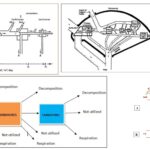IB Biology 6 Views 1 Answers
Sourav PanLv 9November 9, 2024
How does cooperation and collaboration between groups of scientists contribute to the research on memory and learning?
How does cooperation and collaboration between groups of scientists contribute to the research on memory and learning?
Please login to save the post
Please login to submit an answer.
Sourav PanLv 9May 15, 2025
Cooperation and collaboration between groups of scientists significantly enhance research on memory and learning by fostering interdisciplinary approaches, sharing methodologies, and integrating diverse perspectives. Here’s how these collaborative efforts contribute to advancements in the field:
Interdisciplinary Collaboration
- Integration of Diverse Disciplines:
- Memory and learning research benefits from the convergence of multiple disciplines, including psychology, neuroscience, cognitive science, linguistics, and computer science. This interdisciplinary approach allows for a more comprehensive understanding of complex phenomena such as memory processes and cognitive functions. For example, insights from neuroscience can inform psychological theories about memory, while computational models can simulate cognitive processes.
- Shared Methodologies and Techniques:
- Collaborative efforts enable scientists to share methodologies and techniques that might be unique to their respective fields. This sharing enhances the robustness of research findings and promotes innovative experimental designs. For instance, cognitive scientists may adopt neuroimaging techniques from neuroscience to visualize brain activity during memory tasks .
- Development of New Research Questions:
- Working across disciplinary boundaries allows researchers to frame new questions that are not confined to a single field. This can lead to novel hypotheses and experimental approaches that enrich the study of memory and learning. For instance, collaborations between humanities scholars and cognitive scientists can explore how cultural factors influence memory.
Enhancing Research Outcomes
- Improved Understanding of Memory Mechanisms:
- Collaborative research has led to significant advances in understanding the mechanisms underlying memory formation, retention, and recall. For example, studies involving both behavioral experiments and neurobiological assessments have provided deeper insights into how different types of memories are processed in the brain .
- Addressing Cognitive Disorders:
- Interdisciplinary projects often focus on practical applications, such as developing better diagnostic tools and therapies for cognitive disorders. By combining expertise from various fields, researchers can design interventions that address the multifaceted nature of conditions like Alzheimer’s disease or other forms of dementia .
- Fostering Innovation in Educational Practices:
- Collaboration among educational psychologists, neuroscientists, and educators has led to the development of improved learning tools and paradigms that are informed by scientific understanding of how memory works. This can result in more effective teaching strategies that enhance learning outcomes
0
0 likes
- Share on Facebook
- Share on Twitter
- Share on LinkedIn
0 found this helpful out of 0 votes
Helpful: 0%
Helpful: 0%
Was this page helpful?




